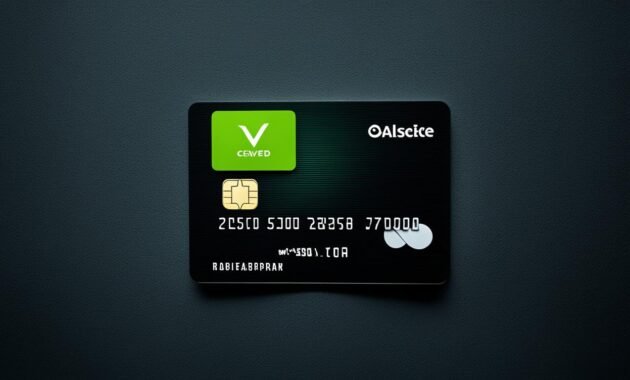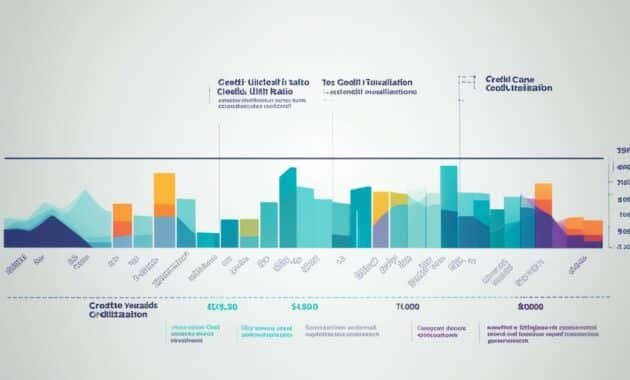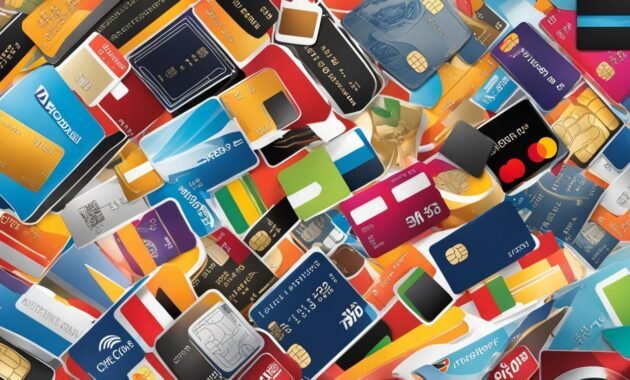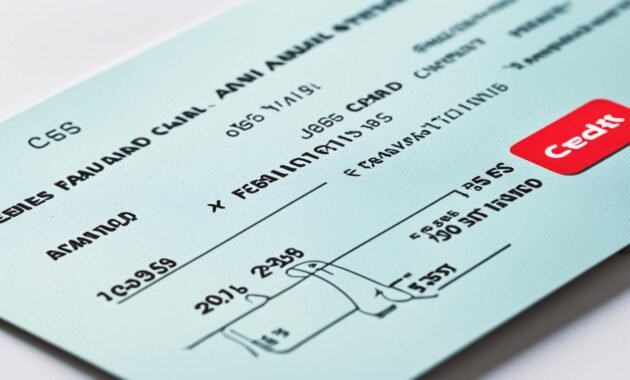Rules For Using Your Credit Card : When used responsibly, credit cards can provide numerous benefits. However, improper usage can lead to financial difficulties. To help you make the most of your credit card while avoiding common pitfalls, we’ve compiled a list of 8 simple rules. By following these guidelines, you’ll enhance your credit card management skills and ensure responsible usage.
Key Takeaways:
- Always pay your credit card bill on time to avoid late payment fees and increased APR.
- Pay your credit card bill in full within the grace period to avoid accumulating interest and potential debt.
- Maintain a low credit utilization ratio to improve your credit score.
- Charge only what you can afford to pay off in full to avoid unnecessary debt.
- Regularly check your credit card statements for errors and fraudulent charges.
Know Your Credit Card Bill’s Due Date
When it comes to managing your credit card, one of the crucial factors to keep in mind is the due date for your credit card bill. Failing to pay your bill on time can have significant consequences, including late payment fees, immediate interest accrual, and even an increased APR.
Late payment fees are charges imposed by credit card companies when you miss the due date for your bill. These fees can range from $25 to $40, depending on the credit card issuer and your outstanding balance. Not only do these fees result in unnecessary expenses, but they can also make it harder to stay on top of your financial obligations.
Furthermore, paying your credit card bill late can lead to immediate interest accrual. Once your payment is late, your credit card company can start charging interest on your outstanding balance. This means that your debt can grow rapidly, making it even more challenging to catch up on payments.
What’s even more concerning is that habitual late payments can result in an increased APR (Annual Percentage Rate). The APR determines the interest you’ll be charged on your outstanding balance, and a higher APR means you’ll pay more in interest over time. According to the Credit Card Act of 2009, if you’re more than 60 days late on your payment, credit card companies have the right to raise your interest rate.
Understanding your credit card bill’s due date and meeting it consistently is crucial for maintaining control of your finances. By paying your bill on time, you can avoid late payment fees, prevent immediate interest accrual, and maintain a favorable APR. Take the necessary steps to stay organized and ensure that you have enough funds to cover your credit card payments promptly.
Remember, responsible credit card usage includes being aware of your credit card bill’s due date and making timely payments to avoid unnecessary expenses and financial setbacks.
Source: First source
| Consequences of Late Credit Card Payments | Effects |
|---|---|
| Late payment fees | Additional charges of $25-$40 |
| Immediate interest accrual | Debt grows rapidly |
| Increased APR | Higher interest rates |
Pay Your Credit Card Bill in Full

To avoid interest charges and prevent debt accumulation, it’s crucial to pay your credit card bill in full within the 25-day grace period. By paying only the minimum amount due, you risk getting caught in a balance snowball effect where interest accrues on the remaining balance, gradually increasing your debt burden.
When you pay your credit card bill in full, you ensure that you don’t end up paying more than the original purchase price due to interest charges. This responsible financial practice helps you maintain control over your expenses and avoids unnecessary debt accumulation.
Remember, paying your bill in full not only allows you to avoid interest charges but also empowers you to use credit cards as a valuable financial tool without getting caught in a cycle of indebtedness.
| Payment Type | Effect on Interest Charges |
|---|---|
| Pay in Full | Avoids interest charges |
| Pay Minimum Amount Due | Accumulates interest on the remaining balance |
By paying your credit card bill in full, you take control of your finances and avoid unnecessary interest charges. Make it a habit to pay off your balance within the grace period to enjoy the benefits of responsible credit card usage while staying in control of your financial well-being.
Keep Your Credit Utilization Ratio Low

Your credit utilization ratio plays a significant role in determining your credit score. It refers to the ratio of your total credit card balances to your total available credit. Maintaining a low utilization ratio is crucial for maintaining a healthy credit score and demonstrating responsible credit card usage.
It is recommended to keep your credit utilization ratio below 30%. This means that you should aim to use no more than 30% of your total available credit at any given time. By doing so, you show lenders that you are not overly reliant on credit and can manage your finances responsibly.
It’s important to note that your credit utilization ratio takes into account the combined balances of all your credit cards. Therefore, maxing out one card while another has a low balance can still have a negative impact on your credit score.
Why is a low credit utilization ratio important?
Maintaining a low credit utilization ratio is crucial because it has a direct impact on your credit score. The utilization ratio contributes to 30% of your FICO score, making it one of the most influential factors in determining your creditworthiness.
A high utilization ratio suggests to lenders that you are relying heavily on credit and may be at risk of overextending yourself financially. This can lower your credit score and make it more challenging to qualify for loans, credit cards, and other forms of credit in the future. On the other hand, a low utilization ratio indicates that you are using credit responsibly and within your means.
How to maintain a low credit utilization ratio?
There are several strategies you can employ to keep your credit utilization ratio low:
- Pay off your credit card balances in full and on time each month.
- Avoid carrying high balances on your credit cards.
- Regularly monitor your credit card balances and credit limits.
- Consider requesting a credit limit increase if you have a consistently low utilization ratio.
By following these practices, you can demonstrate responsible credit card usage and maintain a healthy credit utilization ratio, positively impacting your credit score.
Only Charge What You Can Afford

When it comes to using your credit card, it’s important to exercise financial wisdom and only charge what you can afford to pay off in full. Many people fall into the trap of using their credit cards to make unnecessary purchases, often driven by a desire for instant gratification rather than a genuine need. This can quickly lead to financial strain and the accumulation of debt that becomes difficult to manage.
Instead, it’s advisable to utilize your credit card for specific purposes that align with your financial goals and responsibilities. For example, you can use your credit card to make protection-oriented, larger purchases, such as electronics or appliances, where the additional safeguards offered by credit card companies can provide peace of mind.
Additionally, credit cards can be a helpful temporary tool for managing cash flow. If you encounter a situation where your income is temporarily reduced, or you face unexpected expenses, using your credit card can provide a temporary solution. However, it’s crucial to have a concrete plan in place to pay off the balance within the grace period, ensuring that you don’t incur unnecessary interest charges.
| Charging Habits | Pros | Cons |
|---|---|---|
| Charging only what you can afford | – Ensures financial stability – Prevents accumulating debt – Allows for efficient use of credit cards |
– May require delayed gratification – Restricts impulse purchases |
| Misusing credit cards for unnecessary purchases | – Provides instant gratification | – Can lead to financial strain and debt accumulation |
| Using credit cards for protection on larger purchases | – Additional safeguards and buyer protection | – Can contribute to impulsive buying behavior |
| Temporary use of credit cards for managing cash flow | – Provides a short-term solution for cash flow challenges | – Requires a concrete plan to pay off the balance within the grace period |
By charging only what you can afford, you can maintain control over your finances and avoid unnecessary debt. It’s crucial to distinguish between wants and needs, ensuring that you make responsible financial decisions and prioritize long-term stability over impulsive purchases. By adhering to this principle, you can effectively utilize credit cards as financial tools that enhance your life, rather than burden it.
Check Your Credit Card Statements Regularly

Checking your credit card statements regularly is an important practice in responsible credit card usage. By reviewing your statements, you can:
- Identify and rectify errors: Mistakes happen, and sometimes you may notice duplicate charges or charges for subscriptions you have canceled. By carefully examining your statements, you can catch these errors and contact your credit card company to have them resolved.
- Monitor your expenses: Regularly reviewing your credit card statements allows you to keep track of your spending and gain a better understanding of where your money goes each month. This knowledge empowers you to make informed decisions about your finances and adjust your spending habits if necessary.
- Detect fraudulent charges: While credit card companies have measures in place to detect and prevent unauthorized transactions, it’s always wise to double-check your statements for any suspicious activity. By being vigilant and promptly reporting any fraudulent charges, you can protect yourself from financial loss and prevent further unauthorized activity.
Remember, responsible credit card usage involves actively managing and monitoring your finances. By regularly checking your credit card statements, you can ensure accuracy, stay on top of your expenses, and safeguard yourself against potential fraud.
Choose Credit Cards That Suit Your Needs

When it comes to selecting a credit card, it’s important to consider your specific needs and goals. Not all credit cards are created equal, and finding the right one can make a significant difference in maximizing your benefits. Whether you’re looking for travel rewards, cash-back rewards, or statement credit rewards, choosing a card that aligns with your priorities can enhance your overall credit card experience.
“Choose a credit card that rewards you for the things you enjoy the most. If you love to travel, look for a card that offers travel rewards such as airline miles or hotel points. On the other hand, if you prefer cash-back rewards that you can use towards everyday purchases, there are credit cards available that provide excellent cash-back options. Knowing what you value most will help you make an informed decision.”
If you frequently travel, consider applying for an airline mileage credit card that offers perks such as airport lounge access, free checked bags, and priority boarding. These cards typically earn miles for every dollar spent, which can be redeemed for flights, hotel stays, and more. However, if you rarely fly, an airline mileage credit card may not provide much value and may have higher annual fees.
Benefits of Different Credit Cards
Aside from travel rewards, credit cards also offer a range of benefits that cater to individual needs. Cash-back rewards credit cards, for example, provide a percentage of your purchases back as cash. This can be especially beneficial for those who prefer instant rewards and want to save money on everyday expenses.
Furthermore, some credit cards offer statement credit rewards, where the credit card issuer credits your account for specific eligible purchases. This type of credit can help offset your monthly credit card bill or be used to pay for other charges on your card.
Considerations for Balance Carriers
If you anticipate carrying a balance on your credit card, it’s crucial to prioritize finding a card with a favorable introductory APR period. This allows you to enjoy a lower interest rate or even 0% interest for a specified period, reducing the overall cost of interest on your balance. Always pay attention to the terms and conditions of the introductory offer, as well as the interest rate that will apply after the promotional period ends.
Remember, it’s essential to carefully review and compare the features, rewards, fees, and terms of different credit cards before making a decision. Take your time to analyze the pros and cons of each card and choose the one that best fits your needs and financial situation.
| Credit Card | Annual Fee | Travel Rewards | Cash-Back Rewards | Intro APR Period |
|---|---|---|---|---|
| Card A | $0 | ✓ | ✗ | 6 months |
| Card B | $95 | ✓ | ✗ | 12 months |
| Card C | $0 | ✗ | ✓ | 15 months |
In the table above, you can see a quick comparison of three credit cards based on their annual fees, travel rewards, cash-back rewards, and introductory APR periods. Remember to evaluate other features and factors to make an informed decision based on your personal preferences and financial goals.
By choosing credit cards that suit your needs, you can make the most of your credit card experience and enjoy the benefits and rewards that align with your lifestyle. Understanding the various rewards, fees, and APR offers will help you avoid unnecessary costs and maximize the value of your credit card. Remember to use credit cards responsibly and pay off your balance on time to maintain good financial health.
Evaluate Annual Fees

When it comes to choosing a credit card, carefully evaluating the annual fees is crucial. Generally, it’s advisable to opt for cards that don’t have annual fees to avoid unnecessary expenses. However, there may be exceptions for cards that offer valuable rewards. In such cases, it’s important to determine if the rewards provided offset the annual fee and if you will utilize them effectively.
Paying unnecessary annual fees can significantly impact your savings potential. By choosing credit cards without annual fees or finding ones that offer good rewards without hefty fees, you can avoid unnecessary financial burden and maximize the benefits of credit card usage.
Remember, credit cards should work for you, not against you. Don’t let annual fees eat into your savings. Make wise decisions and select credit cards that align with your financial goals.
| Credit Card | Annual Fee | Rewards |
|---|---|---|
| Airline Miles Card | $99 | Frequent flyer miles |
| Cash-Back Rewards Card | $0 | Cash back on purchases |
| Travel Rewards Card | $150 | Travel points |
Table: Comparison of Credit Cards with Annual Fees and Rewards.
As seen in the table above, some credit cards offer annual fees while providing specific rewards. Evaluate whether the rewards justify paying the annual fee before making a decision. Consider your spending habits and reward preferences when choosing a credit card that suits your needs.
Remember to weigh the value of rewards against the annual fee to ensure you are making a financially wise decision.
Don’t Close Old Credit Card Accounts
When it comes to managing your credit, it’s important to understand the impact of closing old credit card accounts. The average age of your credit accounts plays a significant role in determining your credit score.
Keeping older accounts open can have a positive effect on your credit score. These longstanding accounts demonstrate your ability to responsibly manage credit over time. Closing credit card accounts, especially ones with a long history, can decrease your average account age, potentially lowering your credit score.
Even if you don’t frequently use a particular credit card, it’s generally best to keep it open as long as there are no annual fees associated with it. Having a variety of credit accounts that have been open for a significant period can give lenders more confidence in your creditworthiness. So, think twice before closing those old credit card accounts, as they contribute to your credit history and overall credit score.
Remember, managing your credit wisely is essential for financial stability.
Use Credit Cards Responsibly

Credit cards can be valuable tools when used responsibly. When you make responsible credit card usage a priority, you can enjoy a range of benefits, from increased financial protection to enhanced convenience.
One of the key advantages of responsible credit card usage is the added protection it offers for larger purchases. By using your credit card for major expenses, such as electronics or travel bookings, you benefit from the built-in safeguards provided by most credit card issuers. This includes protection against faulty products or services, as well as the ability to dispute unauthorized charges.
Another advantage of responsible credit card usage is the elimination of the need to carry cash. With a credit card in your wallet, you don’t have to worry about carrying large amounts of cash, which can be a security risk. Credit cards provide a secure and convenient way to make payments, whether you’re shopping in-store, online, or while traveling.
Convenience at Your Fingertips
Responsible credit card usage also provides unrivaled convenience. With just a swipe or a tap, you can easily make purchases and access funds without the need to carry physical currency. This convenience is particularly valuable when you’re traveling, as credit cards are widely accepted around the world.
“Using credit cards responsibly not only offers financial protection but also provides unmatched convenience.”
However, it’s important to remember that responsible credit card usage involves adhering to the guidelines and rules outlined earlier in this article. To maintain financial strength and avoid unnecessary debt, it’s crucial to pay your credit card bill in full, keep your credit utilization ratio low, and only charge what you can afford to pay off within the grace period.
By using your credit cards responsibly, you can enjoy the benefits they offer while avoiding potential pitfalls. Take advantage of the protection, convenience, and financial flexibility that responsible credit card usage provides, and you’ll be well on your way to enhancing your overall financial well-being.
Conclusion
Responsible credit card usage is crucial for maintaining good financial health. By following the 8 simple rules outlined in this article, you can effectively manage your credit card usage, avoid common mistakes, and take advantage of the benefits that credit cards offer.
While credit cards provide convenience and rewards, it’s important to remember that they require discipline and responsible financial management. By using credit cards wisely, you can leverage their advantages while steering clear of the potential drawbacks, such as debt accumulation and financial stress.
Remember to always pay your credit card bill in full to avoid interest charges, keep your credit utilization ratio low to maintain a healthy credit score, and only charge what you can afford. Regularly checking your credit card statements and choosing the right credit cards based on your needs are also essential steps in responsible credit card usage.
By implementing these guidelines, you can enjoy the benefits of credit cards while remaining in control of your finances. Use credit cards responsibly and make them valuable tools in improving your financial well-being.
Also Refer : Citi Diamond Preferred Credit Card Review
FAQs
Q: What are some tips for using credit cards responsibly?
A: Some tips for using credit cards responsibly include paying your bill on time, keeping your many credit card usage low, and paying off your balance in full each month.
Q: How can I improve my credit score by using a credit card?
A: You can improve your credit score by using a credit card responsibly, such as paying your balance in full, keeping your credit utilization low, and avoiding carrying a large credit card debt.
Q: What are some common credit card rules every consumer should follow?
A: Some common credit card rules every consumer should follow include paying your balance on time, not exceeding hurt your credit limit, and monitoring your debit card usage regularly for any unauthorized transactions.
Q: How should I choose the best credit card for my needs?
A: When choosing a credit card, consider factors such as your spending habits, rewards offered, annual fees, and interest rates to determine which card best fits your financial goals and lifestyle.
Q: What should I do if I have credit card debt?
A: If you have credit card debt, create a plan to pay it off by making more than the minimum payment, prioritizing high-interest debt first, and seeking credit counseling if needed to develop a repayment strategy.
Q: How can I use my credit card to boost my credit score?
A: To use your credit card to boost your credit score, pay your balance in full every month, keep your credit utilization low, and avoid opening multiple new credit card accounts within a short period of time.
Q: What are some risks associated with credit cards?
A: Some risks associated with credit cards include credit card fraud, accumulating large amounts of credit card debt, damaging your credit score by missing payments, and falling into a cycle of revolving debt.




